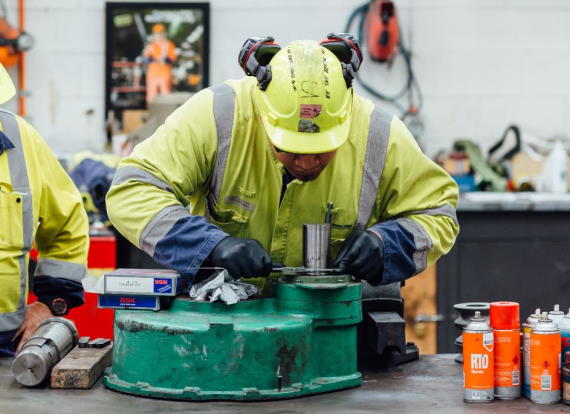Maintenance Fitting Machining Standard

You can work as a fitter in factories, industrial plants, transport depots and for building services companies.
You will install and maintain mechanical, electrical and hydraulic systems and equipment. Your day-to-day tasks may include: installing pipework, valves, pumps and motors, and carrying out planned maintenance.
The following workplace competency standards have been identified and prepared by industry people and represent different levels of skills and knowledge required to work within the Office Administration sector of Papua New Guinea.
Level 1
- MFM-101 Industrial Relations
- MFM-102 Workplace Communications – Verbal
- MFM-103 Marking Out
- MFM-104 Handtools – Non Cutting
- MFM-105 Handtools – Cutting
- MFM-106 Measuring and Testing Tools
- MFM-107 Off – Hand Grinding
- MFM-108 The Centre Lathe – Level One
- MFM-109 Milling – Level 1
- MFM-110 Power Saws
- MFM-111 Drilling and Reaming
- MFM-112 Threading By Hand
- MFM-113 Engineering Drawing – Level 1
- MFM-114 Manual Handling
Level 2
- MFM-201 Workplace Communication – Discussions and Written
- MFM-202 Engineering Calculations
- MFM-203 Fitting Techniques 1
- MFM-204 Flame Cutting
- MFM-205 Manual Metal Arc Welding
- MFM-206 Braze Welding
- MFM-207 The Centre Lathe – Level 2
- MFM-208 Milling – Level 2
- MFM-209 Engineering Drawing – Level 2
- MFM-210 Surface Grinding Machine
- MFM-211 Portable Power Tools
Level 3
- MFM-301 The Centre Lathe – Level 3
- MFM-302 Milling – Level 3
- MFM-303 Material Science
- MFM-304 Pumps And Pumping
- MFM-305 Basic Hydraulics
- MFM-306 Basic Pneumatics
- MFM-307 Fitting Techniques – Level 3
- MFM-308 Mechanical Power Transmission
- MFM-309 Machine and Equipment Installation
- MFM-310 Bearings
- MFM-311 Seals and O-rings